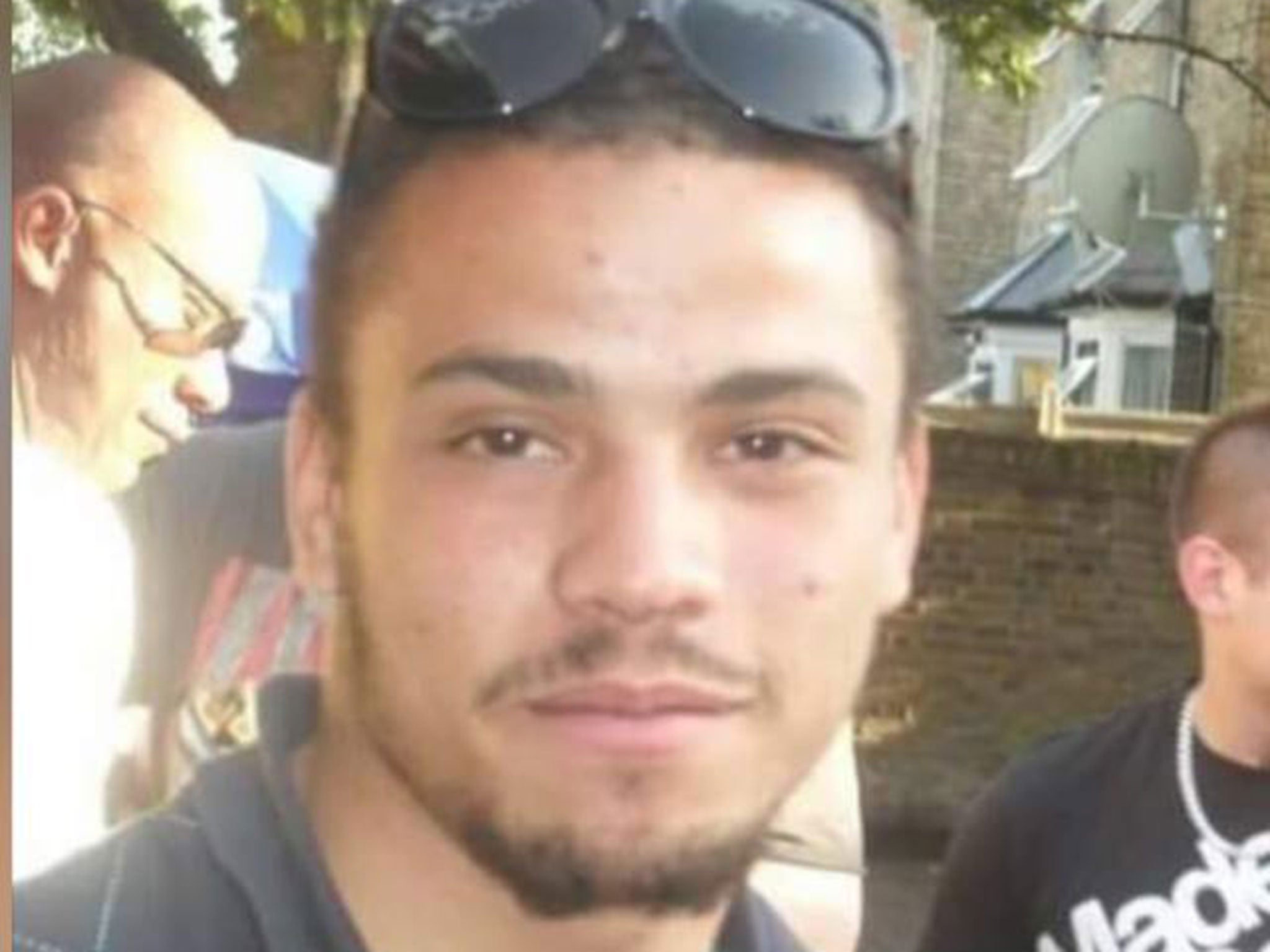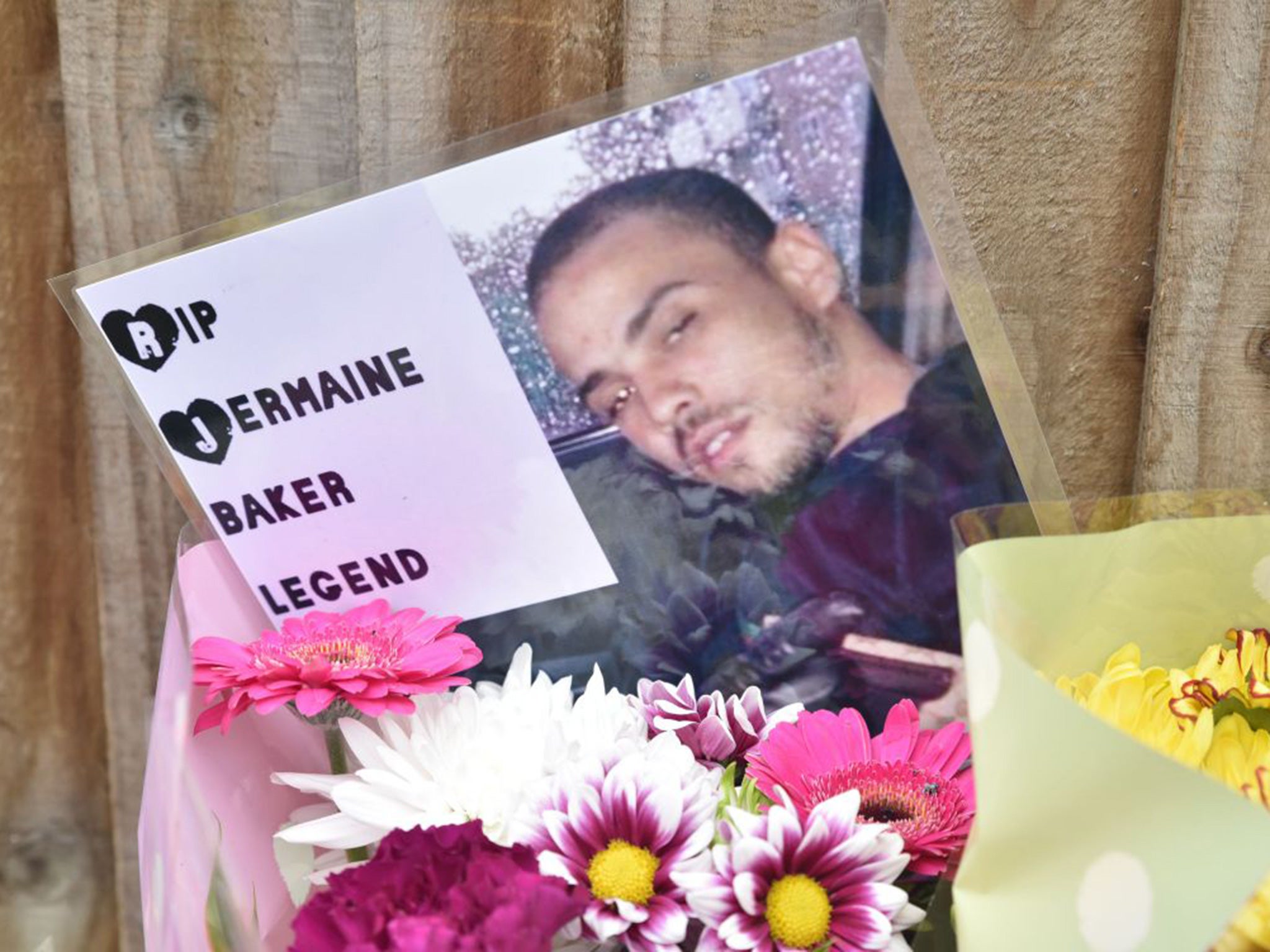Met Police ordered to hold disciplinary hearing for officer who shot man dead during attempted prison break
Critics accuse watchdog of harming recruitment for firearms officers after chiefs say they may have to 'routinely arm' police

A police watchdog has provoked outrage among critics by ordering a gross misconduct hearing for an officer who shot a man dead during an attempted prison break.
The Independent Office for Police Conduct (IOPC) directed action against the anonymous Metropolitan Police officer, known as W80, two-and-a-half years after the incident in 2015.
Its decision was announced a day after chiefs said they may have to routinely arm police in rural areas because they were struggling to recruit enough firearms officers – partly because of fears over legal action.
The Crown Prosecution Service previously decided against charging the officer who shot Jermaine Baker with a criminal offence because there was “no realistic prospect of conviction”.
The 28-year-old had been part of an attempt to spring a criminal from a prison van near Wood Green Crown Court when armed police swooped, later finding a replica machine gun in his car.
The IOPC said W80 for legal reasons had a case to answer for gross misconduct for using excessive force when he shot Mr Baker.
“I have directed that W80 should face gross misconduct proceedings having applied the relevant legal tests,” regional director Sarah Green said.
“It is now for the police misconduct panel, led by an independent legally qualified chair, to test the evidence and to decide on the balance of probabilities whether W80 breached the police standards of professional behaviour by using excessive force.”
But representatives of the Metropolitan Police Federation union accused the IOPC of being a “threat to policing” by scaring officers off going into understaffed firearms units.

"Firearms Officers are some of the bravest and highly skilled officers who are expected to make split-second decisions that are then analysed over many years,” said chairman Ken Marsh.
"It is no wonder that the police service is struggling to recruit firearms officers when they are threatened with losing their job after protecting the public.
"The MPF are fully supporting the officer at this very difficult time.”
A review of the legal protections afforded to police officers who kill suspects was ordered by David Cameron in 2015 but remains “ongoing” with no set end date.
On Wednesday the National Police Chiefs’ Council (NPCC) announced that a funding boost aiming to increase the number of counter-terrorist specialist firearms officers had fallen short of target and response vehicles could not reach rural areas fast enough, meaning that “routine arming” of everyday bobbies had to be considered.
When asked why there were not enough volunteers for firearms training, the NPCC lead for armed policing named the fear of legal action following shootings as a key factor.
Deputy Chief Constable Simon Chesterman said the law was clear but officers felt they were “treated like suspects” for carrying out their duty.
“Fatal shootings are going to happen and on those rare occasions what officers want is to be treated like professional witnesses,” he added.
“They want to be held to account, they want their actions to be scrutinised, but they want it to be done in a fair way.”
Mr Chesterman said officers feared “saying the wrong thing” and being prosecuted, or having the threat of disciplinary action stretching out for years – as in the Baker case.
“It is a major concern for officers - they’re worried about their mortgage, their job, their livelihood, they get pressure from families saying ‘why would you want to do that’,” he added.
“When there is a fatal shooting of a terrorist who has carried out an atrocity the officers are heroes, when we shoot someone involved in serious and organised crime there is an outcry.
“We feel officers should be treated the same regardless.”
The officer facing disciplinary action said he believed Mr Baker was armed and reaching for a weapon when he opened fire, and a replica Uzi machine gun was recovered from the bugged stolen car.
His two accomplices were later jailed for trying to free Izzet Eren, who is serving a 14-year prison sentence for carrying a loaded pistol and machine gun on his way to carry out a shooting.
Eren had arranged the plot from the inside using a smuggled mobile phone.
Announcing their decision not to bring charges last year, the CPS said: “The officers reasonably believed that the men in the car were dangerous individuals, who were armed and prepared to use their weapons to achieve their criminal purpose.”
Mr Baker’s family requested a review of the decision but the CPS confirmed its position had not changed in March.
A police misconduct hearing applies a different standard of proof, assessing whether there has been a breach of police standards rather than a criminal offence.
Scotland Yard said it would follow the IOPC’s order to arrange a hearing but “disagreed with its findings”.
“W80, their family and the officer's colleagues continue to receive every possible support from the Met,” a spokesperson said.
The Inquest charity, which has supported Mr Baker’s family, called the Metropolitan Police’s reaction “deeply concerning”.
“Any fatal use of force by police officers must be subjected to the highest level of scrutiny and accountability,” said director Deborah Coles.
“This follows a pattern of similar cases where forces are refusing to act until compelled to do so.
“Almost two-and-a-half years since Jermaine’s death, his family are still waiting to see some semblance of justice and accountability.
“Can the public really have confidence in a system that allows forces to manage their own misconduct processes in such serious cases as this?"
Bookmark popover
Removed from bookmarks